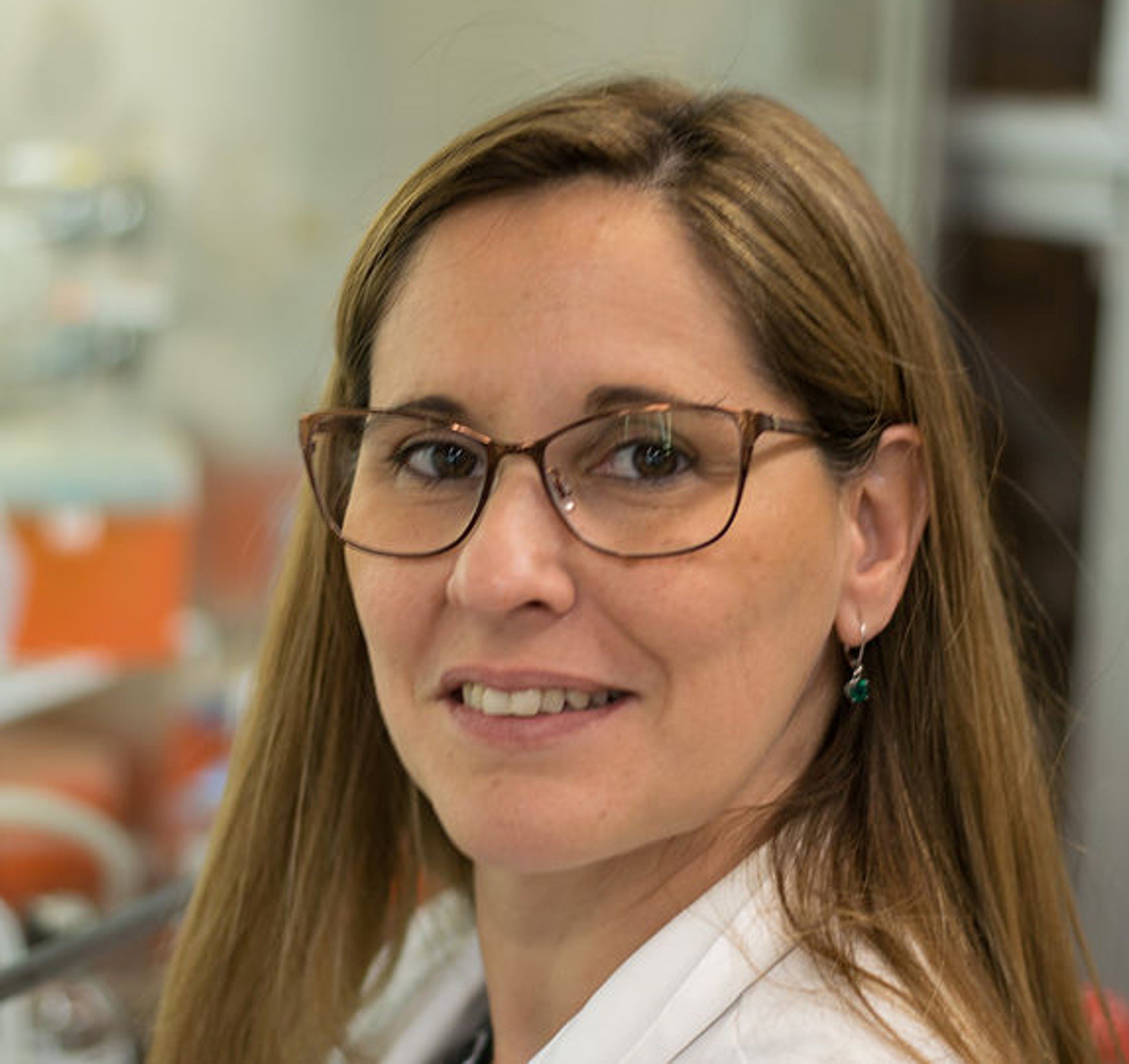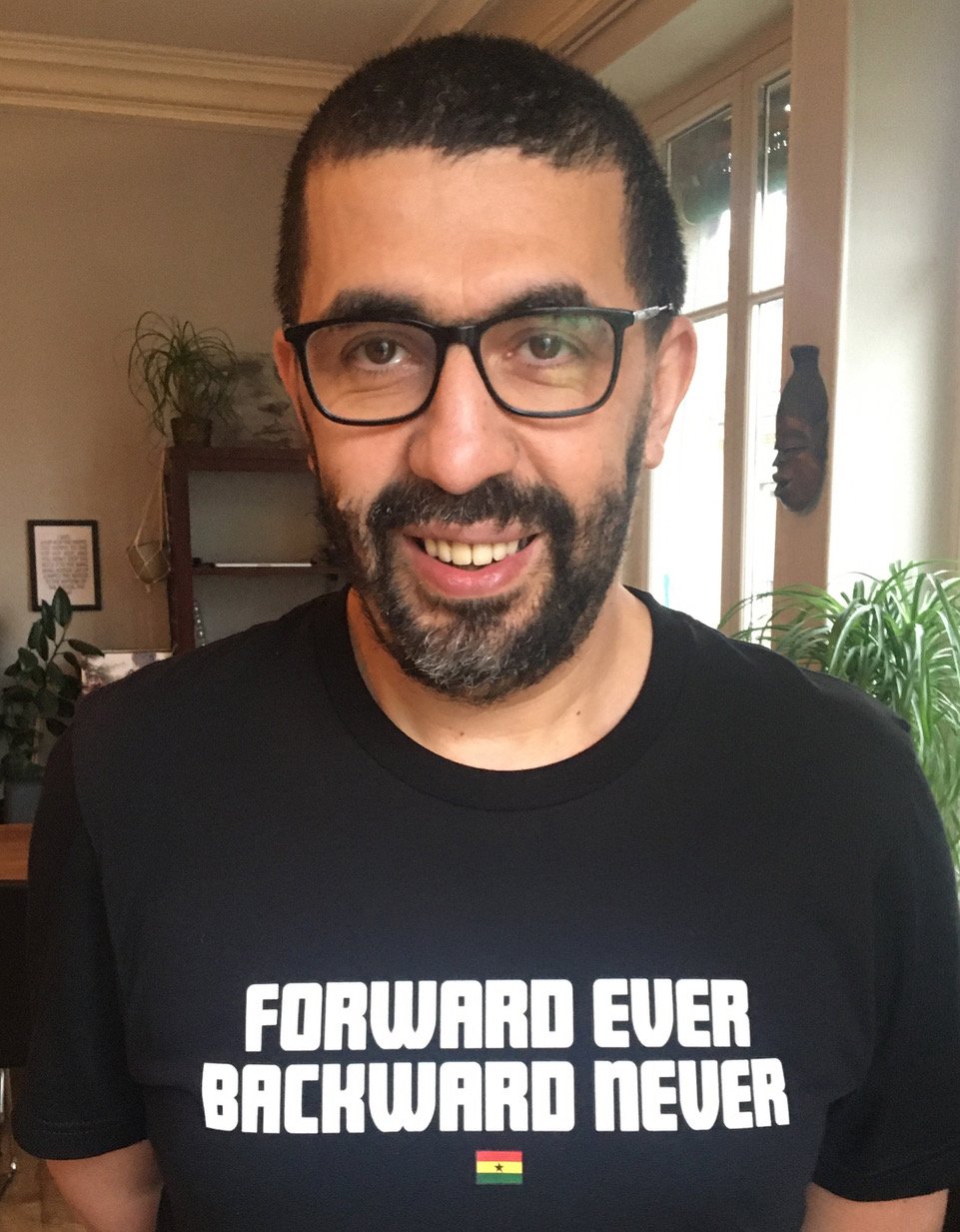
Parasite Hour with PiP

Maria E. Francia
My journey from the south of the world and back while falling in love with parasites and their unique cell division biology
Cell division in Apicomplexan parasites is a fascinating process mechanistically based on divergent regulatory principles. We seek to understand the molecular details of nuclear mitosis. For this, we use molecular genetics and ultrastructure expansion microscopy in Toxoplasma gondii. We seek to understand the mechanisms by which nuclear division is attained, and coordinated with daughter cell assembly, to generate new infective parasites.

Veronica Jimenez Ortiz
Getting the feel of it: multiple roles of mechanosensation in trypanosomatids

Anita Koshy
Title: Toxoplasma gondii-neuron interactions: how much could we get wrong?
Toxoplasma's persistence in neurons underlies the parasite's ability to cause a life-term latent infection that can reactivate in the setting of acquired immune deficiencies. This talk will focus on how our recent work has changed our view of the interactions between T. gondii and neurons.

Yifan Wang
Genome-wide CRISPR screens identify immunomodulatory effectors in Toxoplasma gondii
Toxoplasma gondii is a highly successful intracellular protozoan parasite that can infect almost all warm-blooded animals and invade all the nucleated cells. To establish the infection, Toxoplasma mainly utilizes its diverse secretory effectors to manipulate the host innate immune system and evade immune clearance at the site of infection. As a postdoctoral researcher, I took a cutting-edge genetic approach, genome-wide CRISPR screen, to study Toxoplasma secretory effectors that modulate host immune signals and affect pathogenicity. By identifying these immunomodulatory effectors in Toxoplasma, we uncovered novel aspects of Toxoplasma-host interactions, which will likely provide a robust scientific framework for the further development of immunotherapeutic strategies against toxoplasmosis.

Sumiti Vinayak Alam
Genetics of the diarrheal pathogen Cryptosporidium parvum: illuminating parasite biology and validating drug targets

Sabrina Absalon
Decoding new players of Plasmodium nuclear multiplication using expansion microscopy
Sabrina earned her Ph.D. studying intraflagellar transport in the protozoan Trypanosoma brucei in Dr. Philippe Bastin's lab at Pasteur Institute, Paris. In 2019, after completing a postdoc in Dr. Jeff Dvorin's lab at Boston Children's hospital, she joined Indiana University School of medicine as an Assistant Professor. Her lab focuses on deciphering the molecular mechanisms underlying nuclear replication during the intraerythrocytic development cycle of Plasmodium falciparum, a malaria-causing parasite.

Bruno Martorelli
Exploiting Toxoplasma metabolism as a pathway for drug discovery
Our lab goal is to determine how environmental and metabolic changes modulate Toxoplasma gondii pathogenesis and differentiation.

Mohamed-Ali Hakimi
Epigenetic reprogramming of Toxoplasma sexual development in vitro, using the MORC/HDAC3 complex as a cornerstone.
Mohamed-Ali Hakimi received his PhD in plant molecular biology from the University of Grenoble Alpes (UGA), France, in 2000. After a postdoctoral internship at the Wistar Institute (UPENN, Philadelphia), he joined the French Institute of Public Health INSERM as a permanent scientist in 2004, where he currently serves as research director and leads a team at the Institute of Advanced Biosciences (Grenoble, France). His team is investigating the sophisticated epigenetic mechanisms that Toxoplasma gondii employs to profoundly alter host gene expression and remodel its own genome to evade immune defenses and promote transmission and lifelong persistence in diverse hosts.

Regina Joice Cordy
Bringing the gifts that my ancestors gave: My journey toward incorporating my self into my science
Learn more: cordyrj.sites.wfu.edu

Calvin Tiengwe
Novel iron regulatory factors in African trypanosomes
Learn more: www.imperial.ac.uk/tiengwe-lab

Nsa Dada
Mosquito microbiome: Another wrinkle in the insecticide resistance conundrum
Learn more: www.nsadada.com

Joseph Smith
Flipping the switch: Monitoring mRNA editing throughout the complete life cycle of Trypanosoma brucei
Joseph was introduced to mitochondrial biology of parasites when he joined the lab of Dr. Carmen Fioravanti at Bowling Green State University as a volunteer undergraduate microbiology major. This triggered his curiosity that led him to pursue his Ph.D. in biomedical science with an emphasis on molecular parasitology. He joined Dr. Minu Chaudhuri’s lab and studied mitochondrial protein import in the protozoan parasite Trypanosoma brucei. Currently, Joseph is a senior postdoctoral fellow at the University at Buffalo in the lab of Dr. Laurie K. Read. He studies the developmental regulation of mitochondrial mRNA uridine insertion/deletion editing in the life cycle of Trypanosoma brucei. He plans to continue researching the regulation of mitochondrial and developmental processes in T. brucei by pursuing a tenure-track faculty position. Forever a parasitologist.
Learn more: medicine.buffalo.edu/departments/micro/education/postdoc/postdocs/JosephSmith.html

Chi-Min Ho
Structural Parasitology of the Malaria Parasite Plasmodium falciparum
Dr. Chi-Min Ho earned her B.A. in Molecular and Cell Biology at the University of California, Berkeley in 2004, after which she joined the lab of Professor Robert Stroud at the University of California, San Francisco and worked on membrane protein structure determination. In 2011 she was recruited to the Infectious Diseases Division at the Novartis Institutes for Biomedical Research in Emeryville, CA, where she worked for three years in small molecule drug discovery for infectious diseases before moving on to pursue a doctoral degree in 2014. She completed her Ph.D. in Biochemistry, Biophysics & Structural Biology at the University of California, Los Angeles in 2019, under the mentorship of Professor Hong Zhou. She joined the faculty of the Department of Microbiology & Immunology at Columbia University in January 2020. Research in Dr. Ho's Lab focuses on understanding how membrane protein complexes mediate host-pathogen interactions in blood-stage malaria parasites, using single-particle cryo electron microscopy (cryoEM) and in situ cryo electron tomography (cryoET). To accomplish this, her lab develops and applies novel approaches that combine cutting-edge techniques in malaria parasite gene-editing, single-particle cryoEM, and in situ cryoET to overcome longstanding barriers to high resolution structural study in malaria parasites.
Learn more: www.cmholab.org

Berlin Londono
Studying vector-host interactions and malaria in Latin America
Dr. Londoño is currently the lead scientist of the Arbovirology and Immunology Laboratory. Her research is focused on the characterization of mosquito salivary proteins as markers for disease risk and transmission dynamics. She is also looking at the interactions between immunodominant salivary proteins and vertebrate skin cells (Fibroblast, mast cells, and dendritic cells) to characterize their role in disease progression and pathogenesis. Dr. Londoño has a strong background in human immunology and microbiology and has published more than 50 peer-reviewed articles in journals, including Proceedings of the National Academy of Sciences (PNAS) and PLOS Pathogens and Frontiers of Immunology in topics regarding tropical medicine and vector-borne diseases.
Learn more: sph.tulane.edu/trmd/berlin-londono-renteria

Gustavo Arrizabalaga
The Shape Shifting Mitochondrion of Toxoplasma gondii
Dr. Arrizabalaga is a Professor of Pharmacology and Microbiology and an Assistant Dean for Diversity Affairs at the Indiana University School of Medicine. His research team focuses on the cell biology of Toxoplasma gondii, with a special interest on the signaling mechanisms that regulate the propagation of the parasite. He obtained his PhD from MIT and performed a post-doctoral fellowship at Stanford University School of Medicine under the mentorship of Dr. John Boothroyd.
Learn more: www.arrizabalagalab.org

Lola Fagbami
Omics & Me: Exploring Parasitology through Mass Spectrometry
Dr. Fagbami is a postdoctoral researcher at the University of Georgia investigating the mechanism of protein glycosylation in Plasmodium falciparum under the supervision of Dr. Vasant Muralidharan (Center for Tropical and Emerging Global Diseases).

Omar Lamba Sangare
Systematic identification of Toxoplasma gondii virulence factors
How eukaryotic parasites like Toxoplasma gondii survive the host immune response and disseminate to distant organs is poorly understood. Toxoplasma co-opts the host cell by secreting proteins from specialized organelles called rhoptries (ROPs) and dense granules (GRAs). However, most ROPs and GRAs have unknown functions. I used a CRISPR/Cas9 based in vitro and in vivo loss of function screens to identify; GRA45, a Toxoplasma gene product that determines its fitness in IFNγ-stimulated murine macrophages, and a Toxoplasma gene product called TgWIP (Toxoplasma gondii WAVE complex Interacting Protein) that is important for its in vivo dissemination.

Vasant Muralidharan
Egress of malaria parasites: A series of fortunate events
Learn more: www.muralidharanlab.org